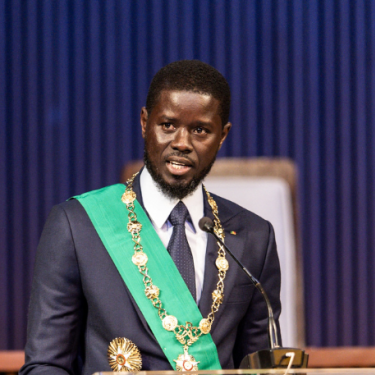Senegal: President Bassirou Diomaye Faye must launch new era for media

Reporters Without Borders (RSF) calls on Senegal’s new president, Bassirou Diomaye Faye, to take bold measures to safeguard media freedom in his country, including an end to prison sentences for press offences, zero tolerance for attacks on the media, and safety guarantees for journalists reporting in the field.
In his election campaign programme, Faye undertook to abolish jail terms for press offences, which was one of the ten key recommendations for safeguarding the right to information that RSF addressed to the presidential candidates. RSF now calls on Faye, who was sworn in as president on 2 April, to keep this promise and begin a new era for the media.
After many press freedom violations in recent years – including arrests and attacks on journalists, media closures and arbitrary Internet shutdowns – RSF urges the new government to prioritise journalists’ safety and to adopt bold policies to ensure that press freedom is respected.
To this end, RSF urges Faye’s administration to carry out the ten key measures proposed by RSF, including regulating online platforms in line with the proposals made by the International Partnership for Information and Democracy, to which Senegal is one of the signatories, and to abolish exorbitant fines for press offences.
Freedom of the press has been badly undermined in recent years in Senegal. The country must reconnect with its tradition as a press freedom model. Bassirou Diomaye Faye was elected on a programme that includes a key promise – the abolition of prison sentences for press offences. We urge the new president to keep this pledge and to pursue a bold policy to make his term of office one in which press freedom is respected and the right to information is protected.
From 2021 to 2023, more than a dozen journalists were physically attacked by police and politicians supporters during socio-political protests triggered by the arrest of opposition leader Ousmane Sonko, who Faye has just appointed as his prime minister.
The situation worsened in the first three months of 2024, in the run-up to the election, when police attacked at least 20 journalists during protests on 9 February. Many journalists have also been detained, including Pape Alé Niang, the DakarMatin news site’s editor, who has been jailed several times since November 2022 in connection with his posts. The authorities also rescinded the licences of two TV channels and took them off the air – SenTV in 2021 and WalfTV three times from 2021 to 2024.
